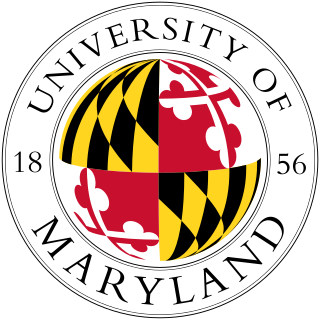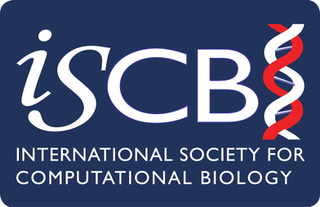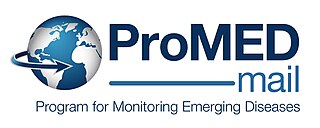 W
WThe Australia Bioinformatics Resource (EMBL-ABR) was a significant initiative under the associate membership to EMBL.
 W
WThe Biocomplexity Institute of Virginia Tech is a research organization specializing in bioinformatics, computational biology, and systems biology. The Institute has more than 250 personnel, including over 50 tenured and research faculty. Research at the Institute involves collaboration in diverse disciplines such as mathematics, computer science, biology, plant pathology, biochemistry, systems biology, statistics, economics, synthetic biology and medicine. The institute develops -omic and bioinformatic tools and databases that can be applied to the study of human, animal and plant diseases as well as the discovery of new vaccine, drug and diagnostic targets.
 W
WThe Computational Biology Department (CBD) is a division within the School of Computer Science at Carnegie Mellon University in Pittsburgh, Pennsylvania, United States. It is located in the Gates-Hillman Center. Established in 2007 by Robert F. Murphy as the Lane Center for Computational Biology with funding from Raymond J. Lane and Stephanie Lane, CBD became a department within the School of Computer Science in 2016.
 W
WThe University of Maryland, College Park is a public land-grant research university in College Park, Maryland. Founded in 1856, UMD is the flagship institution of the University System of Maryland. It is also the largest university in both the state and the Washington metropolitan area, with more than 41,000 students representing all fifty states and 123 countries, and a global alumni network of over 360,000. Its twelve schools and colleges together offer over 200 degree-granting programs, including 92 undergraduate majors, 107 master's programs, and 83 doctoral programs. UMD is a member of the Association of American Universities and competes in intercollegiate athletics as a member of the Big Ten Conference.
 W
WThe Centre for DNA Fingerprinting and Diagnostics (CDFD) is an Indian Biotechnology research centre, located in Hyderabad, India, operated by the Department of Biotechnology, Ministry of Science and Technology, Government of India. CDFD is Sun Microsystems Centre of Excellence in Medical Bio-informatics, supported with a strong bioinformatics facility, and is the India node of the EMBnet. In addition, DNA fingerprinting and diagnostics services provided by the centre support some of the activities. The centre utilises the Combined DNA Index System for DNA profile Matching. The CDFD and the U.S. FBI had signed an MoU early this year for the acquisition of CODIS.
 W
WThe Centre for Genomic Pathogen Surveillance is a computational genomics research institute in South Cambridgeshire.
 W
WEarlham Institute is a life science research institute located at the Norwich Research Park (NRP), Norwich, England. EI's research is focused on exploring living systems by applying computational science and biotechnology to answer ambitious biological questions and generate enabling resources.
 W
WThe Eukaryotic Pathgen Database, or EuPathDB, is a database of bioinformatic and experimental data related to a variety of eukaryotic pathogens. It was established in 2006 under a National Institutes of Health program to create Bioinformatics Resource Centers to facilitate research on pathogens that may pose biodefense threats. EuPathDB stores data related to its organisms of interest and provides tools for searching through and analyzing the data. It currently consists of 14 component databases, each dedicated to a certain research topic. EuPathDB includes:Genomics resources covering eukaryotic protozoan parasites Host responses to parasite infection (HostDB) Orthologs (OrthoMCL) Clinical study data (ClinEpiDB) Microbiome data (MicrobiomeDB)
 W
WJon Entine is an American science journalist. After working as a network news writer and producer for NBC News and ABC News, Entine moved into print journalism. Entine has written seven books and is a contributing columnist to newspapers and magazines. He is the founder and executive director of the science advocacy group the Genetic Literacy Project, and a former visiting scholar at the American Enterprise Institute. He is also the founder of the consulting company ESG Mediametrics.
 W
WInstitute for Systems Biology (ISB) is a non-profit research institution located in Seattle, Washington, United States. ISB concentrates on systems biology, the study of relationships and interactions between various parts of biological systems, and advocates an interdisciplinary approach to biological research.
 W
WThe Institute of Bioinformatics and Applied Biotechnology (IBAB) is a non-profit autonomous institute set up by the Department of IT, BT and S&T, Government of Karnataka. It is located in a 20-acre campus in the southern part of the City of Bengaluru and is a part of Biotech Park.
 W
WCSIR Institute of Genomics and Integrative Biology (CSIR-IGIB) is a scientific research institute devoted primarily to biological research. It is a part of Council of Scientific and Industrial Research (CSIR), India.
 W
WThe International Society for Computational Biology (ISCB) is a scholarly society for researchers in computational biology and bioinformatics. The society was founded in 1997 to provide a stable financial home for the Intelligent Systems for Molecular Biology (ISMB) conference and has grown to become a larger society working towards advancing understanding of living systems through computation and for communicating scientific advances worldwide.
 W
WThe International Society for Computational Biology Student Council (ISCB-SC) is a dedicated section of the International Society for Computational Biology created in 2004. It is composed by students from all levels in the fields of bioinformatics and computational biology. The organisation promotes the development of the students' community worldwide by organizing different events including symposia, workshops, webinars, internship coordination and hackathons. A special focus is made on the development of soft skills in order to develop potential in bioinformatics and computational biology students around the world.
 W
WThe Louis and Beatrice Laufer Center for Physical and Quantitative Biology is a multidisciplinary venue where research from such fields as biology, biochemistry, chemistry, computer science, engineering, genetics, mathematics, and physics can come together and target medical and biological problems using both computation and experiment. The Laufer Center is part of Stony Brook University. The Center's founding and current director is Dr. Ken A. Dill. Other members are Associate Director Dr. Carlos Simmerling,and Henry Laufer Endowed Professor Gábor Balázsi and affiliated faculty from the Departments of Chemistry, Physics, Applied Mathematics, Pharmacology, Biomedical Engineering, Microbiology & Immunology, Ecology & Evolution and Computer Science at Stony Brook University, as well as from Brookhaven National Laboratory and Cold Spring Harbor Laboratory. Among the Laufer Center's goals is to enhance interdisciplinary education at Stony Brook University. Dr. Gábor Balázsi coordinates the flagship course of the Center, Physical and Quantitative Biology, which is offered each Fall through the Departments of Physics, Chemistry and Biomedical Engineering.
 W
WThe Mathematical Biosciences Institute (MBI) is an institution of higher learning affiliated with the Ohio State University in Columbus, Ohio. MBI received major funding from the National Science Foundation.
 W
WThe New York Genome Center (NYGC) is an independent 501(c)(3) nonprofit academic research institution in New York, New York. It serves as a multi-institutional collaborative hub focused on the advancement of genomic science and its application to drive novel biomedical discoveries. NYGC’s areas of focus include the development of computational and experimental genomic methods and disease-focused research to better understand the genetic basis of cancer, neurodegenerative disease, and neuropsychiatric disease. In 2020, the NYGC also has directed its expertise to COVID-19 genomics research.
 W
WThe Philippine Genome Center (PGC) is a multi-disciplinary research facility in Quezon City, Metro Manila, Philippines which specializes in genomics.
 W
WProgram for Monitoring Emerging Diseases is among the largest publicly available emerging diseases and outbreak reporting systems in the world. The purpose of ProMED is to promote communication amongst the international infectious disease community, including scientists, physicians, veterinarians, epidemiologists, public health professionals, and others interested in infectious diseases on a global scale. Founded in 1994, ProMED has pioneered the concept of electronic, Internet-based emerging disease and outbreak detection reporting. In 1999, ProMED became a program of the International Society for Infectious Diseases. As of 2016, ProMED has more than 75,000 subscribers in over 185 countries. With an average of 13 posts per day, ProMED provides users with up-to-date information concerning infectious disease outbreaks on a global scale.
 W
WSciLifeLab is a world-leading Swedish national center for large-scale research and one of the largest molecular biology research laboratories in Europe at the forefront of innovation in life sciences research, computational biology, bioinformatics, training and services in molecular biosciences with focus on health and environmental research. The center combines frontline technical expertise with advanced knowledge of translational medicine and molecular bioscience.
 W
WThe SIB Swiss Institute of Bioinformatics is an academic not-for-profit foundation which federates bioinformatics activities throughout Switzerland.
 W
WThe Translational Genomics Research Institute (TGen) is a non-profit genomics research institute based in Arizona, United States. TGen seeks to employ genetic discoveries to improve disease outcomes by developing smarter diagnostics and targeted therapeutics.